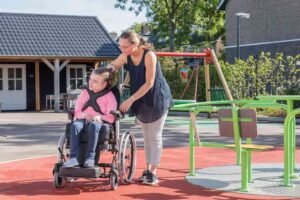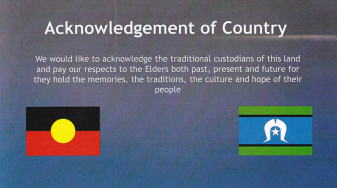In the world of counselling, creating an environment where every individual feels heard and understood is important. For those with disabilities, tailored communication strategies are essential to bridge any potential gaps. The depth of services ensures every individual is met where they are, facilitating genuine connections and understanding.
Understanding Diverse Communication Needs
Individuals with disabilities may have unique communication requirements. For example, a person with a hearing impairment might rely heavily on sign language, while someone with a visual impairment might use Braille or audio descriptions. Advancements in technology have ushered in an array of tools designed to enhance communication. Disability services leverage adaptive technologies like speech-generating devices, which enable those with speech impairments to communicate.
Counselling for a Spectrum of Needs
Each individual will require different counselling techniques and approaches according to their needs:
- Sensory Impairments: Training is provided for those catering to individuals with visual or auditory impairments. This can include understanding the nuances of sign language, facilitating sessions with Braille materials or employing adaptive technologies to aid in communication.
- Physical Disabilities: For those with mobility challenges or other physical limitations, it’s crucial for counsellors to understand how to best facilitate a comfortable and effective communication environment. This might involve understanding the use of assistive devices or tailoring the physical setting of a session.
- Cognitive Differences: With neurodiverse individuals, the approach to communication can vary significantly. Training in this area encompasses understanding different cognitive processes, employing patience and utilising specialised techniques that cater to an individual’s specific way of processing information.
Importance of Non-verbal Communication Tools
While words are powerful, a significant portion of our communication is non-verbal. Recognising and harnessing non-verbal cues are essential when counselling those with disabilities.
- Facial Expressions: They often convey what words cannot. Whether it’s the furrow of a brow indicating confusion or a smile showing contentment, reading and understanding these cues can provide invaluable insight into an individual’s emotional state.
- Body Language: Everything from posture to gestures can provide insight. For instance, a closed-off posture might indicate discomfort or defensiveness, guiding the counsellor in their approach to the session.
The Power of Visual Aids
- Infographics: These simplify complex concepts, making them easily digestible. For instance, explaining the structure of a program or process becomes far more accessible when presented visually.
- Illustrations: They can bring an idea or concept to life, particularly useful for those who might find abstract concepts challenging to grasp through words alone.
- Charts & Graphs: When dealing with data or wanting to show progress, quantifying information and presenting it visually can be transformative. This is especially true in counselling where tracking and visualising progress can be motivating for the individual involved.
Empathy & Active Listening: Building Genuine Connections
At the heart of effective communication lies empathy – the ability to step into someone else’s shoes and truly understand their perspective, ensuring every interaction is founded on genuine understanding and connection. Active listening on the other hand, is a multi-faceted approach that goes beyond merely hearing words; it’s about understanding the emotion and intent behind them.
- Reflective Feedback: By paraphrasing or summarising what was said, counsellors can ensure that they’ve understood the individual’s perspective accurately. This not only shows the individual they’re being heard but also allows for any misconceptions to be immediately addressed.
- Clarifying Questions: These aren’t just about understanding; they’re also tools that encourage deeper introspection. By asking for further details or clarity on specific points, counsellors can guide individuals to explore their thoughts and feelings more deeply.
- Encouraging: Using both verbal and non-verbal cues to prompt further sharing is crucial. It’s about creating an environment where the individual feels safe and encouraged to share openly.
The Importance of Feedback
Feedback is the cornerstone of progress. By understanding what works and what doesn’t, counsellors can continually refine their processes. Encouraging feedback ensures the counselling process remains dynamic and responsive to individual needs.
Need NDIS Counselling? Connect with Point Care Today
At Point Care we provide a range of services, including NDIS counselling, to assist and support NDIS clients in achieving their goals. We can identify and connect you with a counsellor that has the skills and experience necessary to provide the best outcomes for you. If think you or a family member would benefit from NDIS counselling give us a call and speak with our friendly staff. We the areas of Rockhampton, Bundaberg, Fraser Coast, Mackay, Townsville, Cairns & Toowoomba.



























